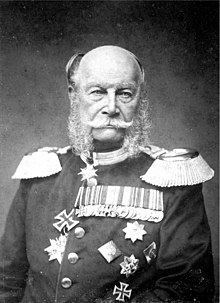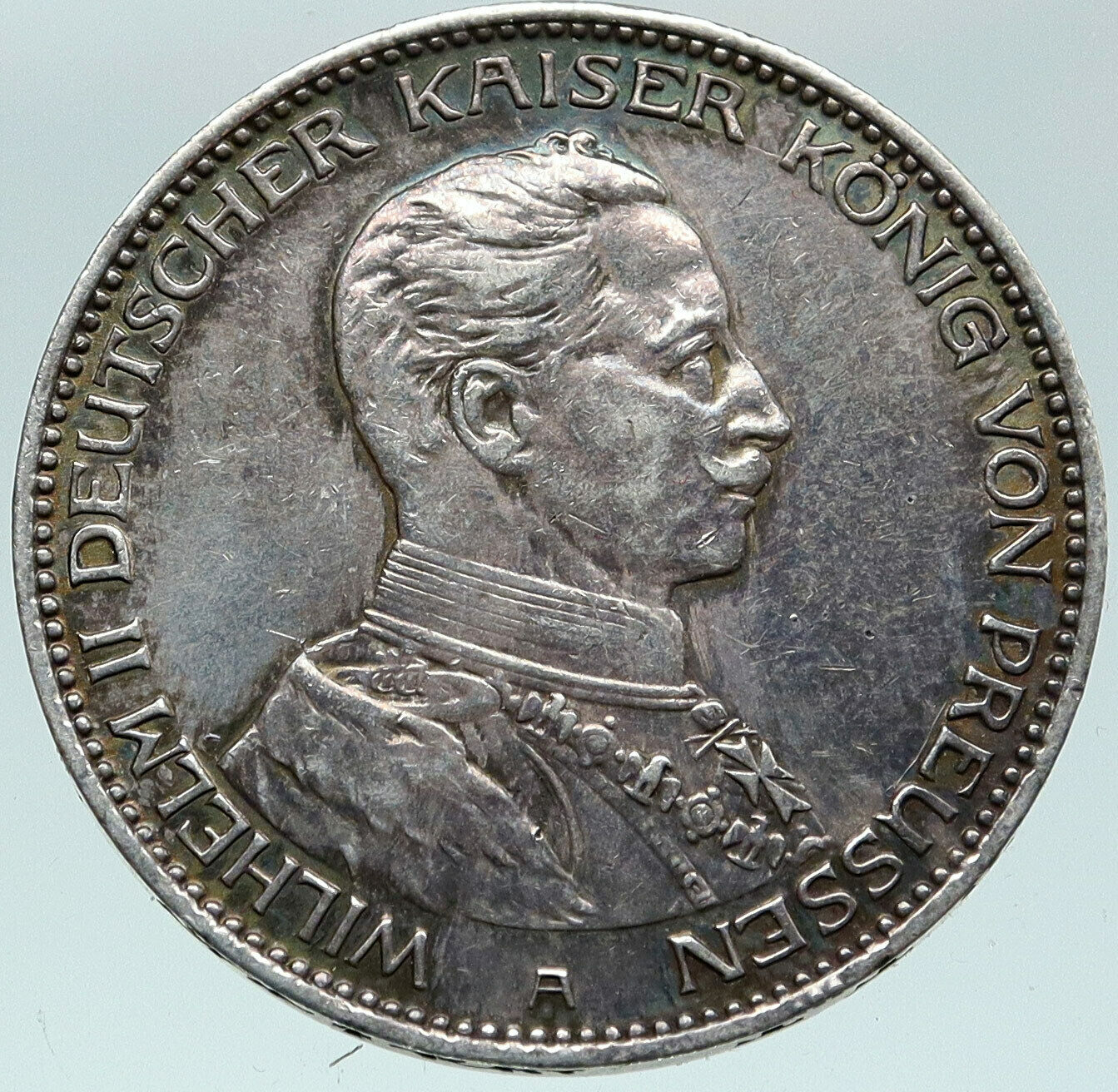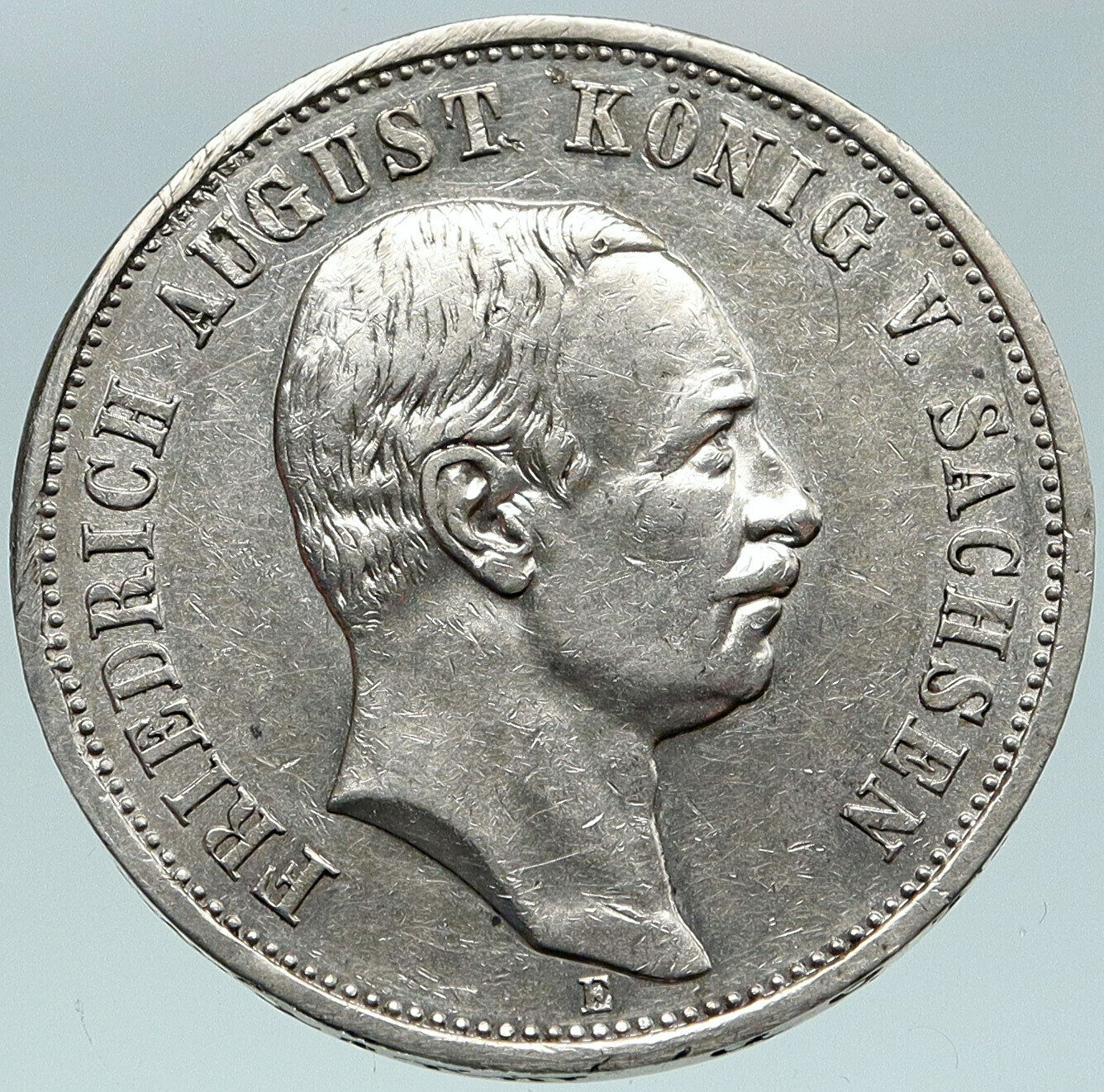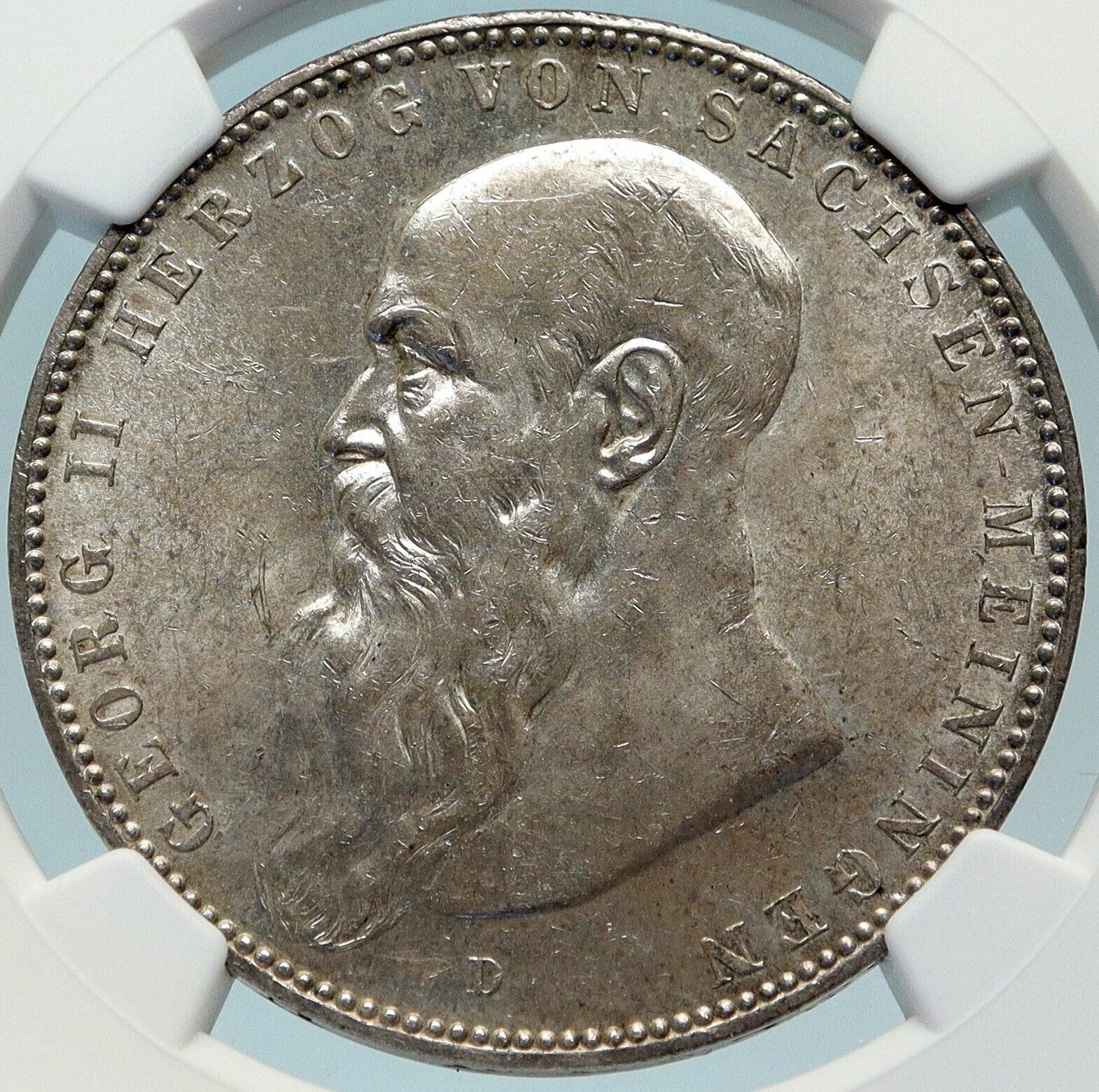|
Germany
under Wilhelm I – Emperor: 2 January 1861 – 9 March 1888
1875 AA Silver 1 Mark 24mm (5.30 grams) 0.900 Silver (0.1606 oz. ASW)
Reference: KM# 7
1 MARK within wreath; DEUTSCHES REICH above; 1875 below.
Crowned imperial eagle with shield on breast.
Mint letter ADEFGJ = A-Berlin D-Munich E-Muldenhütten F-Stuttgart G-Karlsruhe J-Hamburg
You are bidding on the exact item pictured, provided with a Certificate of Authenticity and Lifetime Guarantee of Authenticity.
 William I, also known as Wilhelm I (full name: William Frederick Louis, German: Wilhelm Friedrich Ludwig, 22 March 1797 – 9 March 1888), of the House of Hohenzollern was the King of Prussia (2 January 1861 – 9 March 1888) and the first German Emperor (18 January 1871 – 9 March 1888), as well as the first Head of State of a united Germany. Under the leadership of William and his Minister President Otto von Bismarck, Prussia achieved the unification of Germany and the establishment of the German Empire. Despite his long support of Otto von Bismarck as Minister President, however, William held strong reservations about some of Bismarck’s more reactionary policies, including his anti-Catholicism and tough handling of subordinates. Contrary to the aggressive, domineering Bismarck, William was described as polite, gentlemanly, and while a staunch conservative, more open to certain classical liberal ideas than his grandson Wilhelm II. William I, also known as Wilhelm I (full name: William Frederick Louis, German: Wilhelm Friedrich Ludwig, 22 March 1797 – 9 March 1888), of the House of Hohenzollern was the King of Prussia (2 January 1861 – 9 March 1888) and the first German Emperor (18 January 1871 – 9 March 1888), as well as the first Head of State of a united Germany. Under the leadership of William and his Minister President Otto von Bismarck, Prussia achieved the unification of Germany and the establishment of the German Empire. Despite his long support of Otto von Bismarck as Minister President, however, William held strong reservations about some of Bismarck’s more reactionary policies, including his anti-Catholicism and tough handling of subordinates. Contrary to the aggressive, domineering Bismarck, William was described as polite, gentlemanly, and while a staunch conservative, more open to certain classical liberal ideas than his grandson Wilhelm II.
  Germany, officially the Federal Republic of Germany is a federal parliamentary republic in western-central Europe. It includes 16 constituent states and covers an area of 357,021 square kilometres (137,847 sq mi) with a largely temperate seasonal climate. Its capital and largest city is Berlin. With 81 million inhabitants, Germany is the most populous member state in the European Union. After the United States, it is the second most popular migration destination in the world. Germany, officially the Federal Republic of Germany is a federal parliamentary republic in western-central Europe. It includes 16 constituent states and covers an area of 357,021 square kilometres (137,847 sq mi) with a largely temperate seasonal climate. Its capital and largest city is Berlin. With 81 million inhabitants, Germany is the most populous member state in the European Union. After the United States, it is the second most popular migration destination in the world.
Various Germanic tribes have occupied northern Germany since classical antiquity. A region named Germania was documented before 100 CE. During the Migration Period the Germanic tribes expanded southward. Beginning in the 10th century, German territories formed a central part of the Holy Roman Empire. During the 16th century, northern German regions became the centre of the Protestant Reformation.
The rise of Pan-Germanism inside the German Confederation resulted in the unification of most of the German states in 1871 into the Prussian-dominated German Empire. After World War I and the German Revolution of 1918-1919, the Empire was replaced by the parliamentary Weimar Republic. The establishment of the Third Reich in 1933 led to World War II and the Holocaust. After 1945, Germany split into two states, East Germany and West Germany. In 1990, the country was reunified.
 In the 21st century, Germany is a great power and has the world’s fourth-largest economy by nominal GDP, as well as the fifth-largest by PPP. As a global leader in several industrial and technological sectors, it is both the world’s third-largest exporter and importer of goods. Germany is a developed country with a very high standard of living sustained by a skilled and productive society. It upholds a social security and universal health care system, environmental protection and a tuition free university education. In the 21st century, Germany is a great power and has the world’s fourth-largest economy by nominal GDP, as well as the fifth-largest by PPP. As a global leader in several industrial and technological sectors, it is both the world’s third-largest exporter and importer of goods. Germany is a developed country with a very high standard of living sustained by a skilled and productive society. It upholds a social security and universal health care system, environmental protection and a tuition free university education.
Germany was a founding member of the European Union in 1993. It is part of the Schengen Area, and became a co-founder of the Eurozone in 1999. Germany is a member of the United Nations, NATO, the G8, the G20, and the OECD. The national military expenditure is the 9th highest in the world. Known for its rich cultural history, Germany has been continuously the home of influential artists, philosophers, musicians, sportsmen, entrepreneurs, scientists and inventors.
|





 William I, also known as Wilhelm I (full name: William Frederick Louis, German: Wilhelm Friedrich Ludwig, 22 March 1797 – 9 March 1888), of the House of Hohenzollern was the King of Prussia (2 January 1861 – 9 March 1888) and the first German Emperor (18 January 1871 – 9 March 1888), as well as the first Head of State of a united Germany. Under the leadership of William and his Minister President Otto von Bismarck, Prussia achieved the unification of Germany and the establishment of the German Empire. Despite his long support of Otto von Bismarck as Minister President, however, William held strong reservations about some of Bismarck’s more reactionary policies, including his anti-Catholicism and tough handling of subordinates. Contrary to the aggressive, domineering Bismarck, William was described as polite, gentlemanly, and while a staunch conservative, more open to certain classical liberal ideas than his grandson Wilhelm II.
William I, also known as Wilhelm I (full name: William Frederick Louis, German: Wilhelm Friedrich Ludwig, 22 March 1797 – 9 March 1888), of the House of Hohenzollern was the King of Prussia (2 January 1861 – 9 March 1888) and the first German Emperor (18 January 1871 – 9 March 1888), as well as the first Head of State of a united Germany. Under the leadership of William and his Minister President Otto von Bismarck, Prussia achieved the unification of Germany and the establishment of the German Empire. Despite his long support of Otto von Bismarck as Minister President, however, William held strong reservations about some of Bismarck’s more reactionary policies, including his anti-Catholicism and tough handling of subordinates. Contrary to the aggressive, domineering Bismarck, William was described as polite, gentlemanly, and while a staunch conservative, more open to certain classical liberal ideas than his grandson Wilhelm II.
 Germany, officially the Federal Republic of Germany is a federal parliamentary republic in western-central Europe. It includes 16 constituent states and covers an area of 357,021 square kilometres (137,847 sq mi) with a largely temperate seasonal climate. Its capital and largest city is Berlin. With 81 million inhabitants, Germany is the most populous member state in the European Union. After the United States, it is the second most popular migration destination in the world.
Germany, officially the Federal Republic of Germany is a federal parliamentary republic in western-central Europe. It includes 16 constituent states and covers an area of 357,021 square kilometres (137,847 sq mi) with a largely temperate seasonal climate. Its capital and largest city is Berlin. With 81 million inhabitants, Germany is the most populous member state in the European Union. After the United States, it is the second most popular migration destination in the world. In the 21st century, Germany is a great power and has the world’s fourth-largest economy by nominal GDP, as well as the fifth-largest by PPP. As a global leader in several industrial and technological sectors, it is both the world’s third-largest exporter and importer of goods. Germany is a developed country with a very high standard of living sustained by a skilled and productive society. It upholds a social security and universal health care system, environmental protection and a tuition free university education.
In the 21st century, Germany is a great power and has the world’s fourth-largest economy by nominal GDP, as well as the fifth-largest by PPP. As a global leader in several industrial and technological sectors, it is both the world’s third-largest exporter and importer of goods. Germany is a developed country with a very high standard of living sustained by a skilled and productive society. It upholds a social security and universal health care system, environmental protection and a tuition free university education.




